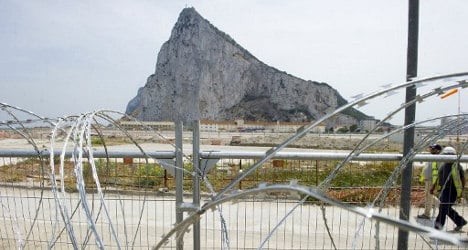Spain's Foreign Minister José García Margallo added fuel to last week’s fire by suggesting a series of financial penalties on Gibraltar's population during an interview with Spanish newspaper ABC on Sunday.
The Spanish minister proposed a €50 ($66) fee for every vehicle entering or leaving the Rock through the Spanish border as well as closing Spain's airspace to flights heading to Gibraltar.
García Margallo also told ABC that Madrid intends to change the law so that online gaming companies operating in Gibraltar come under Spain's taxation regime.
A fiscal investigation into some 6,700 Gibraltarians who live in Spain but use Gibraltar as their tax residence may also be launched.
Check out The Local's List on ten things you didn't know about Gibraltar.
Margallo's words, summarized in ABC under the title "the party is over", have been referred to by Gibraltar's government as "threatening and reactionary" and "reminiscent of the tactics used by Franco’s fascist regime during the 50s and 60s".
The general sentiment on The Rock appears to be that the row is being used by Madrid to divert attention from economic problems and corruption scandals in Spain.
But Spain’s Foreign Minister has justified his government’s potential hard-line measures as a means of compensating Spanish fishermen affected by the damage to shared fishing grounds.
Last week, Gibraltarian authorities tipped 70 blocks of cement into shared waters allegedly in a bid to stop incursions by Spanish trawlers.
This in turn led to a roadblock by Spanish authorities operating at the border between both countries, which left hundreds of drivers stranded in unbearable heat for up to six hours.
The British government, which had already voiced "serious concerns" about the dispute, has vowed to carry out its "constitutional commitments" to the people of Gibraltar after two of the most turbulent weeks in Spain-Gibraltar relations in recent times.




 Please whitelist us to continue reading.
Please whitelist us to continue reading.
Member comments